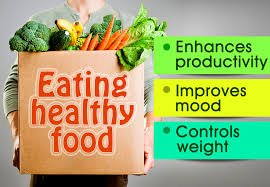Why Healthy food is Importance .In our modern, busy lives, Your health is one of the most important things in your life. It affects your physical, mental, and emotional well-being. That’s why it’s so important to be proactive about your health and take steps to prevent illness and disease. Being proactive in health means taking steps to improve your health before you get sick. Best Healthy Food we eat plays a crucial role in our overall health and well-being.
The Best Healthy Food is not just about weight management; it’s about nourishing our bodies with the right nutrients to thrive and stay well. Let’s explore why Best Healthy Food matters and how to incorporate it into your daily routine
Importance of healthy eating
A Healthy food is Importance for good health and nutrition. It protects you against many chronic noncommunicable diseases, such as heart disease, diabetes , type 2 diabetes, and some cancers. Eating a variety of foods and consuming less salt, sugars and saturated and industrially-produced trans-fats are essential for a healthy diet.
Healthy eating Provide the energy and nutrients you need to keep active throughout the day while ensuring that you remain healthy far into the future. , Support immune function. Help the digestive system function.
Benefits of Eating Healthy
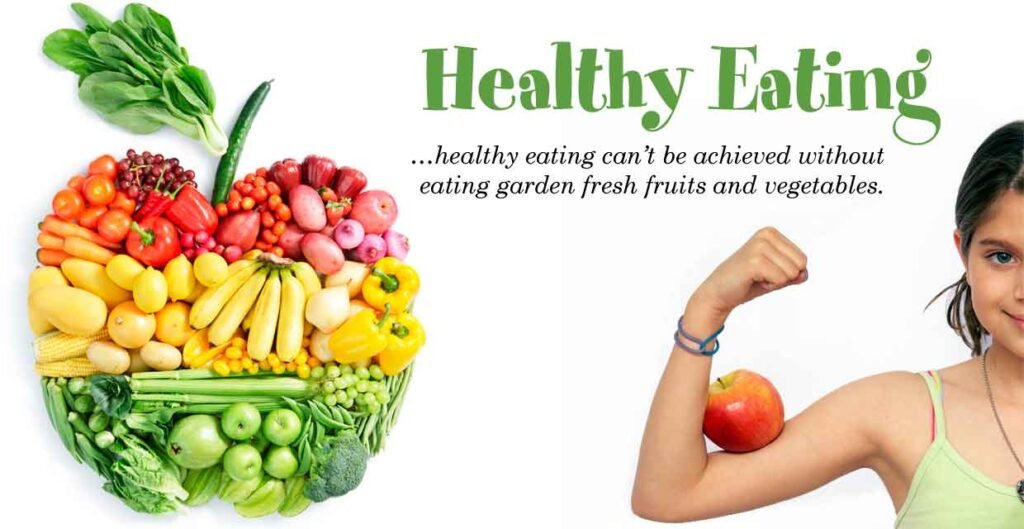
A healthy lifestyle can not only help you feel better, but it can also reduce the risk of some diseases, lengthen your lifespan, save you money, and benefit the environment. Your version of a healthy lifestyle is whatever you define it to be. There’s nothing you must or must not do in order to be healthy.
Eating healthy offers numerous benefits that impact various aspects of your life. Here are some key advantages:
1. Improved Physical Health
- Reduced Risk of Chronic Diseases: A balanced diet rich in fruits, vegetables, whole grains, and lean proteins can help lower the risk of developing chronic diseases such as heart disease, diabetes, and cancer.
- Better Weight Management: Eating a variety of nutrient-dense foods can help maintain a healthy weight, which reduces the strain on the heart and other organs.
- Stronger Immune System: Nutrient-rich foods provide the vitamins and minerals necessary for a strong immune system, helping the body to fend off illnesses and infections.
2. Enhanced Mental Well-being
- Improved Mood and Energy Levels: Consuming a balanced diet can help regulate blood sugar levels, leading to more stable energy throughout the day. Nutrients like omega-3 fatty acids, found in fish, and antioxidants, found in fruits and vegetables, are linked to improved mood and cognitive function.
- Better Sleep: A healthy diet can promote better sleep patterns. Foods rich in magnesium, such as leafy greens and nuts, are known to support good sleep quality.
3. Increased Longevity
- Extended Lifespan: Studies have shown that a diet rich in nutrients and low in processed foods can contribute to a longer, healthier life.
- Reduced Risk of Premature Aging: Antioxidants found in healthy foods help combat oxidative stress, which can slow down the aging process and improve skin health.
4. Enhanced Digestive Health
- Better Digestive Function: A diet high in fiber from fruits, vegetables, and whole grains promotes healthy digestion and regular bowel movements, reducing the risk of constipation and other digestive issues.
- Gut Health: Probiotic-rich foods like yogurt and fermented products support a healthy gut microbiome, which is essential for overall health.
5. Improved Physical Appearance
- Healthier Skin, Hair, and Nails: A diet rich in vitamins and minerals supports skin elasticity, hair strength, and nail health. Hydrating foods like fruits and vegetables also contribute to a radiant complexion.
- Maintained Muscle Mass: Adequate protein intake helps preserve muscle mass, which is important for overall strength and metabolism.
6. Increased Productivity and Cognitive Function
- Enhanced Brain Function: Nutrient-rich foods support brain health, improving memory, concentration, and overall cognitive function.
- Better Academic and Work Performance: A well-nourished body and mind can lead to increased productivity and better performance in daily tasks.
7. Environmental Benefits
- Sustainable Choices: Choosing locally sourced, organic, and plant-based foods can reduce your carbon footprint and promote environmental sustainability.
- Less Waste: A focus on whole foods often results in less packaging and waste, benefiting the environment.
Components of a Best Healthy Food
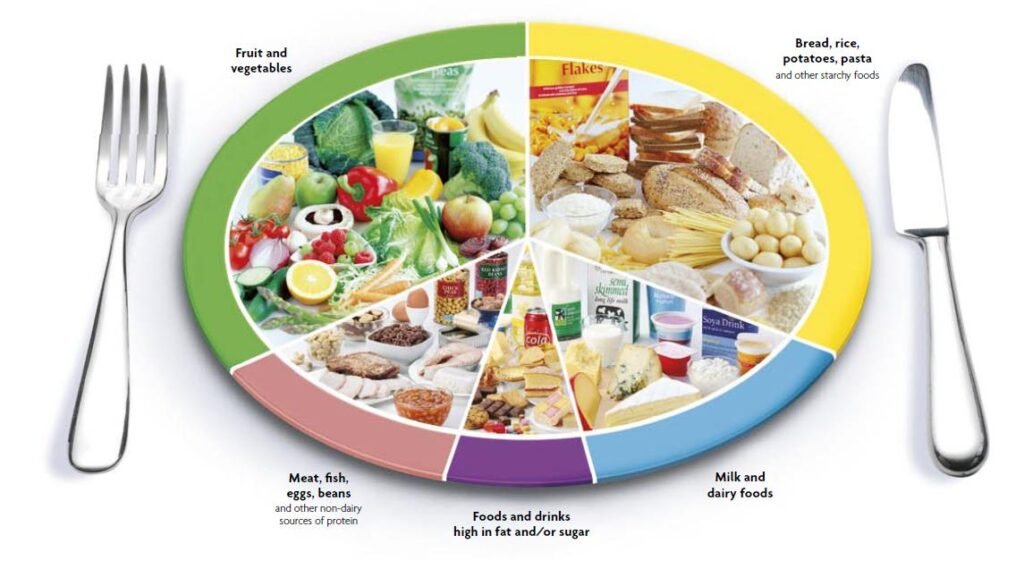
Creating a diet with the best healthy foods involves incorporating a variety of nutrient-dense components. Here are the essential components of a healthy diet:
1. Fruits and Vegetables
- Variety of Colors: Different colors represent various nutrients and antioxidants. Aim for a “rainbow” on your plate to ensure a wide range of vitamins and minerals.
- Fresh and Seasonal: Opt for fresh, in-season produce to maximize nutrient intake and flavor.
2. Whole Grains
- Unrefined Grains: Choose whole grains like brown rice, quinoa, oats, and whole wheat over refined grains. These provide more fiber, vitamins, and minerals.
- High Fiber Content: Whole grains support digestive health and help maintain steady blood sugar levels.
3. Lean Proteins
- Plant-Based Proteins: Include beans, lentils, tofu, and tempeh, which are high in protein and low in unhealthy fats.
- Animal-Based Proteins: Opt for lean meats like chicken and turkey, as well as fish, which is rich in omega-3 fatty acids.
4. Healthy Fats
- Unsaturated Fats: Incorporate sources of healthy fats such as avocados, nuts, seeds, and olive oil. These fats support heart health and cognitive function.
- Omega-3 Fatty Acids: Found in fatty fish like salmon and flaxseeds, omega-3s are essential for brain health and reducing inflammation.
5. Dairy or Dairy Alternatives
- Low-Fat Options: Choose low-fat or fat-free dairy products, or fortified plant-based alternatives like almond milk, soy milk, or oat milk.
- Calcium and Vitamin D: Ensure adequate intake of these nutrients for bone health.
6. Hydration
- Water: Aim to drink plenty of water throughout the day to stay hydrated and support bodily functions.
- Herbal Teas: These can be a good alternative to sugary drinks and can provide additional antioxidants.
7. Limited Processed Foods
- Minimize Added Sugars: Reduce consumption of foods and beverages high in added sugars, such as sodas, candies, and baked goods.
- Avoid Trans Fats: Limit intake of trans fats found in many processed and fast foods, as they are linked to increased risk of heart disease.
8. Nuts and Seeds
- Nutrient-Dense Snacks: Nuts and seeds are packed with protein, healthy fats, and essential vitamins and minerals. Examples include almonds, chia seeds, and walnuts.
- Moderation: Consume in moderation due to their high calorie content.
9. Herbs and Spices
- Natural Flavor Enhancers: Use herbs and spices like garlic, turmeric, ginger, and basil to enhance flavor and nutritional value without added salt or sugar.
- Antioxidant Properties: Many herbs and spices have anti-inflammatory and antioxidant properties that support overall health.
10. Balanced Portions
- Portion Control: Pay attention to portion sizes to avoid overeating and to maintain a balanced diet.
- Mindful Eating: Practice mindful eating by paying attention to hunger and fullness cues and enjoying meals without distractions.
Negative Effects of Unhealthy Eating
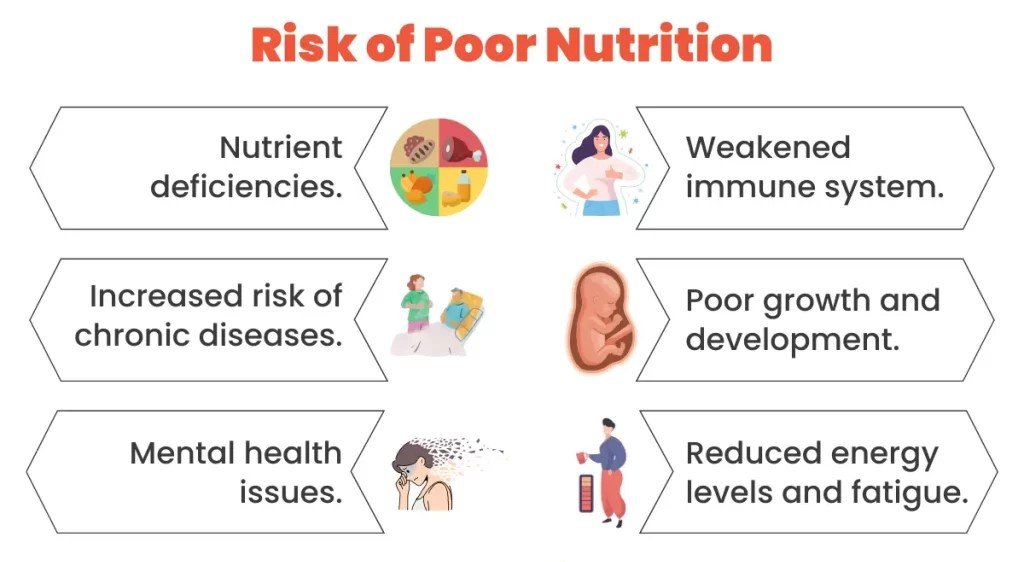
Researchers found that eating too much or too little of certain foods and nutrients can raise the risk of dying of heart disease, stroke, and type 2 diabetes. These results suggest ways to change eating habits that may help improve health.
- Weight Gain: High-calorie, low-nutrient foods can contribute to weight gain and obesity.
- Nutrient Deficiencies: Lack of essential vitamins and minerals can weaken immune function and impair overall health.
- Increased Risk of Chronic Diseases: Poor diet is linked to an increased risk of heart disease, diabetes, and certain cancers.
- Digestive Issues: High intake of processed foods and low fiber can lead to constipation and digestive disorders.
- Low Energy Levels: Diets high in sugars and unhealthy fats can cause energy crashes and fatigue.
- Poor Mental Health: Unhealthy eating can impact mood stability and increase the risk of depression and anxiety.
- Skin Problems: Diets lacking in nutrients can contribute to acne and other skin issues.
- Shortened Lifespan: Chronic health conditions from poor diet choices can reduce overall life expectancy.
Tips for Eating Healthy Every Day
Maintaining healthy eating is important for every day can significantly improve your overall health and well-being. By making these small, consistent changes, you can achieve and maintain a healthier lifestyle. Here are some practical tips to help you eat healthy daily:
- Plan Meals: Prepare meals and snacks in advance.
- Variety: Include colorful fruits and vegetables.
- Portion Control: Use smaller plates and listen to hunger cues.
- Hydrate: Drink at least 8 glasses of water daily.
- Healthy Snacks: Choose fruits, nuts, and yogurt.
- Read Labels: Check for added sugars and unhealthy fats.
- Cook at Home: Control ingredients and cooking methods.
- Limit Processed Foods: Opt for fresh, whole foods.
- Regular Meals: Eat at consistent times, including breakfast.
- Mindful Eating: Savor food without distractions.
- Reduce Sugar and Salt: Use natural sweeteners and herbs.
- Stay Active: Combine healthy eating with regular exercise.
Common Myths about Healthy Eating
It’s important to dispel common misconceptions about healthy eating is Important :
- Best Healthy Food is Expensive:
While some healthy options can be costly, there are plenty of budget-friendly choices available. Buying in-season produce and planning meals can help save money. - Healthy Food is Boring:
Healthy meals can be delicious and satisfying with the right preparation and seasoning. Explore new recipes and cooking techniques to make healthy eating enjoyable.
Teaching Kids About Best Healthy Food
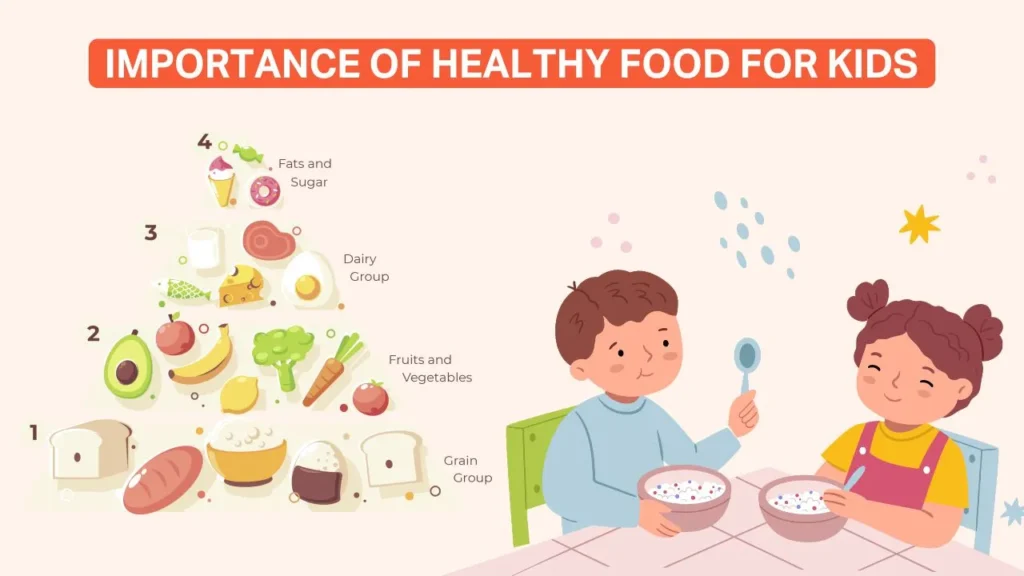
Teaching kids about healthy eating sets the foundation for lifelong habits that promote overall well-being. Here are effective ways to educate children about the best healthy foods:
- Lead by example and eat meals together.
- Explain food groups and their benefits.
- Cook together and make healthy eating fun.
- Encourage smart snack choices and limit sugary drinks.
- Teach moderation and occasional treats.
- Educate about reading food labels and making balanced meals.
- Promote regular meals, physical activity, and positive reinforcement.
- Correct food myths and involve school/community in healthy eating initiatives.
Healthy Food and Sustainable Living
Healthy food and sustainable living are interconnected concepts that promote both personal well-being and environmental stewardship. Here’s how they relate:
Healthy food and sustainable living go hand in hand:
- Choose nutrient-dense, plant-based foods for health benefits.
- Opt for local, seasonal produce to reduce environmental impact.
- Minimize processed foods and food waste for both health and sustainability.
- Support ethical food practices to promote community and environmental stewardship.
Conclusion
In conclusion, focusing on healthy eating habits is Important of and embracing sustainable food choices not only enhances personal well-being but also contributes to a more resilient and eco-friendly future. By prioritizing nutrient-dense foods such as fruits, vegetables, whole grains, and lean proteins, individuals can support their overall health, reduce the risk of chronic diseases, and promote longevity. Simultaneously, emphasizing plant-based diets and local, seasonal produce helps minimize environmental impact by conserving resources and reducing greenhouse gas emissions associated with food production and transportation.
Eating healthy is a fundamental pillar of a healthy lifestyle. By prioritizing nutrient-rich foods, practicing moderation, and debunking myths surrounding Best Healthy Food, you can enhance your overall well-being and vitality.
